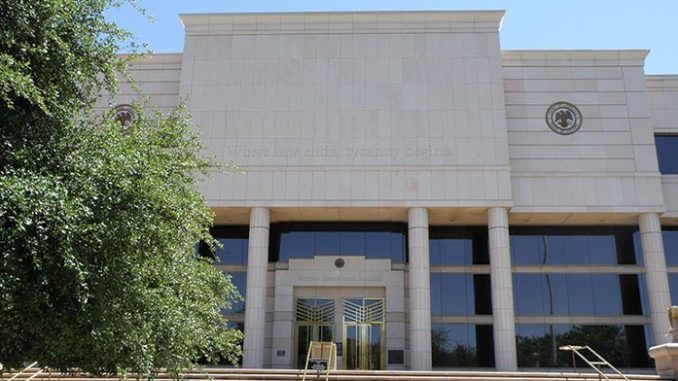
The Arizona Supreme Court is being asked to review a court of appeals decision which granted a convicted child molester a new trial because a cold expert was allowed to give testimony about how “most” child sex offenders act.
Gary E. Starks is serving a 15-year sentence after being convicted in 2019 of child molestation and indecent exposure with a minor under age 15. Among the witnesses called at his trial was a cold expert approved by the court to testify about “general patterns of behavior” related to child sexual abuse even though the cold expert knew nothing about the details of Starks’ case.
Starks’ convictions were overturned last month by the Arizona Court of Appeals which ordered a new trial because the trial judge erred by allowing the prosecutor to elicit generalized suspect profile evidence from the cold expert. It will be the third time a jury has been asked to decide if Sparks committed the offenses in 2016.
But instead of being transferred to the Pima County jail to await that new trial later this year, Starks remains in prison because the Arizona Attorney General’s Office filed a petition last week asking the Supreme Court justices to review the case.
Court records show Starks was not related to the victim but had served as a “parental figure” to her for several years. The girl told a school friend about sexual acts Starks reportedly engaged in with her, after which the friend told a school employee who in turn notified police.
A Pima County grand jury indicted Starks on felony counts of sexual abuse, sexual conduct with a minor, sexual assault, indecent exposure, and child molestation of a child under the age of 15. A mistrial was declared in Starks’ first trial when the jury reported it could not come to any unanimous verdicts.
During a new trial in 2019, the jury returned a guilty verdict on the indecent exposure charge and found Starks guilty of child molestation, a lesser-included charge of sexual conduct. But before the trial, Starks tried to preclude the state’s expert, Dr. Wendy Dutton, from testifying in his case about the general process of victimization and general behaviors of perpetrators which are used to create a profile of a perpetrator.
Some questions Dutton was allowed to answer included how common it is for a perpetrator to commit a sexual act on a sleeping child and whether it was common for abuse to happen in a home where other family members are. None of Dutton’s testimony related specifically to Starks or the alleged victim in the case.
The court of appeals went into its review of Starks appeal by viewing the evidence “in the light most favorable to sustaining the convictions.” But in a 2 to 1 opinion, the court ruled Starks’s convictions must be reversed because the expert’s testimony offered “profiling” evidence as substantive proof of Starks guilt.
“(Dutton’s) testimony created a profile of an offender as someone who enters the family, takes over discipline from the existing parent, is harsh to the child or the existing parent, and eventually sexually abuses the child, ‘fairly commonly’ while the child is sleeping or ‘quite often’ with others present,” the opinion noted. “We conclude that the trial court erred in admitting the challenged profile testimony.”
The opinion goes on to note that in light of the evidence presented in the case and the nature of the trial court’s error “we cannot conclude beyond a reasonable doubt that the error did not affect the verdict and must reverse Starks’s convictions and sentences.”
The attorney general’s office filed a petition for review with the Arizona Supreme Court on June 25. If the justices refuse to take the case or uphold the new trial order, then Sparks must be retried within 90 days of the order.
If the Supreme Court rejects the new trial order then Starks will not be released from prison until September 2034 after which he will be required to serve lifetime probation and register as a sex offender in whatever county he lives.
